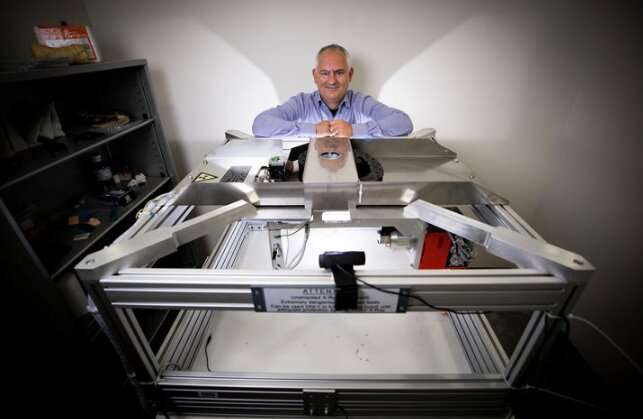
Local audio system frequently dominate the dialogue in multilingual on-line conferences, however including an automatic player that periodically interrupts the dialog can assist non-native audio system get a phrase in edgewise, consistent with new analysis at Cornell.
Xiaoyan Li, a doctoral scholar within the box of knowledge science, used multilingual teams to check out the useful bot—known as a conversational agent—which was once programmed to intrude after local audio system took six consecutive turns. The agent enabled non-native audio system to damage into the dialog, expanding their participation from 12% to 17% of all phrases spoken.
Whilst individuals who didn’t have English as a primary language normally discovered the agent to be useful, local audio system concept the intrusions have been distracting and needless.
“Non-native audio system favored having an opening to replicate at the dialog and the chance to invite questions,” mentioned Li. “Additionally, being invited to talk, they felt like their conversation companions have been valuing their views.”
Li introduced the learn about, “Making improvements to non-native Audio system’ Participation with an Computerized Agent in Multilingual Teams,” Jan. 9 on the Affiliation for Computing Equipment (ACM) World Convention on Supporting Crew Paintings. The paper is revealed in Lawsuits of the ACM on Human-Laptop Interplay.
The muse for the learn about struck Li when she was once a brand new scholar at Cornell, looking to give a contribution to crew discussions in her communications seminar. Regardless of being fluent in English, Li struggled to spot herbal gaps within the dialogue and to overcome local audio system to the openings.
“When the non-native audio system do not discuss up in school, other folks think that it is simply because that they had not anything to mention,” mentioned co-author Susan Fussell, professor within the Division of Data Science within the Cornell Ann S. Bowers Faculty of Computing and Data Science, and within the Division of Verbal exchange within the Faculty of Agriculture and Lifestyles Sciences. “No one ever thinks it’s because they’ve issues getting the ground.”
For the learn about, Li recruited 48 volunteers and positioned them into teams of 3, with two local English audio system and a local Jap speaker assembly in a videoconference. The teams finished 3 survival workouts, which concerned discussing imaginary crisis eventualities and score which pieces (e.g., ax, compass, newspaper, and so on.) salvaged from a ship, airplane or spaceship could be helpful for survival.
One workout concerned the automatic agent and for any other, the teams have been on their very own. In a 3rd workout, non-native audio system may secretly turn on the agent once they sought after to talk, as a substitute of looking forward to it to intrude. The Jap audio system infrequently used this feature, on the other hand, for worry of interrupting the dialog on the fallacious time.
The agent used IBM Watson automated speech popularity device to trace who was once talking, and would blink and wave to sign an drawing close interruption. Co-author Naomi Yamashita, a prominent researcher on the Nippon Telegraph and Phone Company (NTT), constructed the agent.
Earlier efforts to conquer language boundaries—corresponding to offering assembly transcripts, automated language translation and graphics appearing everybody’s participation degree—have failed. Against this, the agent proved remarkably a success, expanding participation from non-native audio system via 40%.
In interviews after the survival workouts, non-native audio system mentioned the agent did not all the time interrupt at a great time, however being put at the spot pressured them to be much less frightened about their grammar, so they might center of attention on getting their concepts throughout.
Local audio system, on the other hand, had a much less sure view of the agent. “Non-native audio system spoke so much much less, however the local audio system weren’t acutely aware of that,” Li mentioned. “So that they blamed the agent for interrupting once they concept the dialog was once equivalent.”
Fussell’s crew has lately evolved its personal agent and feature a number of proposed enhancements to check out.
“It might be great if the agent best intervened when the non-native speaker had one thing they sought after to mention, versus simply striking them at the spot,” Fussell mentioned.
They are going to make use of extra refined alerts that it is time to yield the ground, corresponding to non-public messages to the local audio system, or they might use synthetic intelligence or biosensors to decide when a non-native speaker is able for an opening.
Additional information:
Xiaoyan Li et al, Making improvements to Non-Local Audio system’ Participation with an Computerized Agent in Multilingual Teams, Lawsuits of the ACM on Human-Laptop Interplay (2022). DOI: 10.1145/3567562
Quotation:
Bot provides non-native audio system the ground in videoconferencing (2023, January 31)
retrieved 3 March 2023
from https://techxplore.com/information/2023-01-bot-non-native-speakers-floor-videoconferencing.html
This file is topic to copyright. With the exception of any honest dealing for the aim of personal learn about or analysis, no
section is also reproduced with out the written permission. The content material is equipped for info functions best.
Supply Via https://techxplore.com/information/2023-01-bot-non-native-speakers-floor-videoconferencing.html




